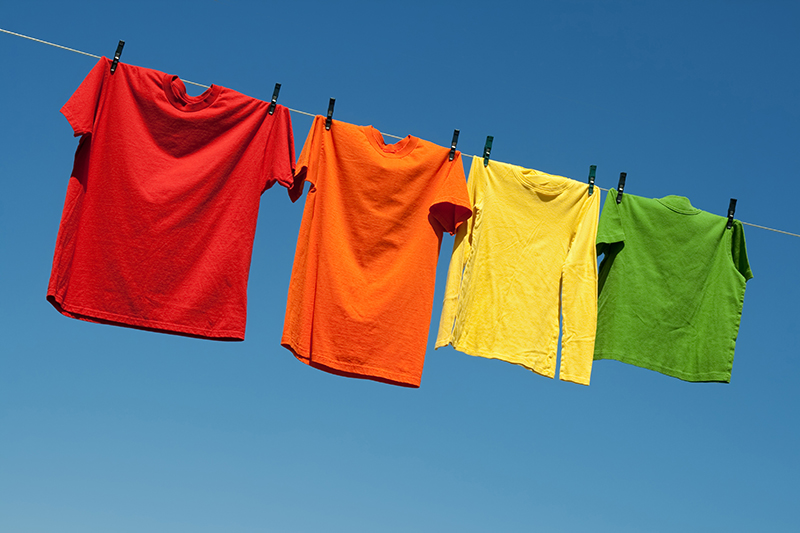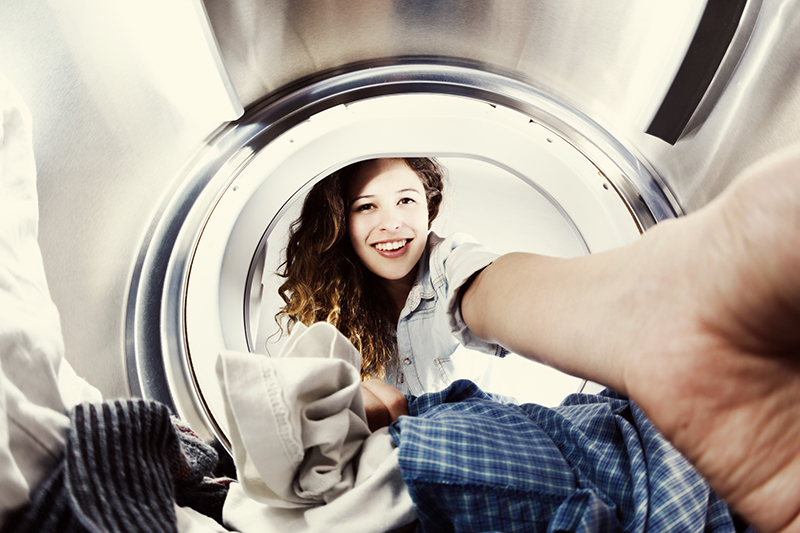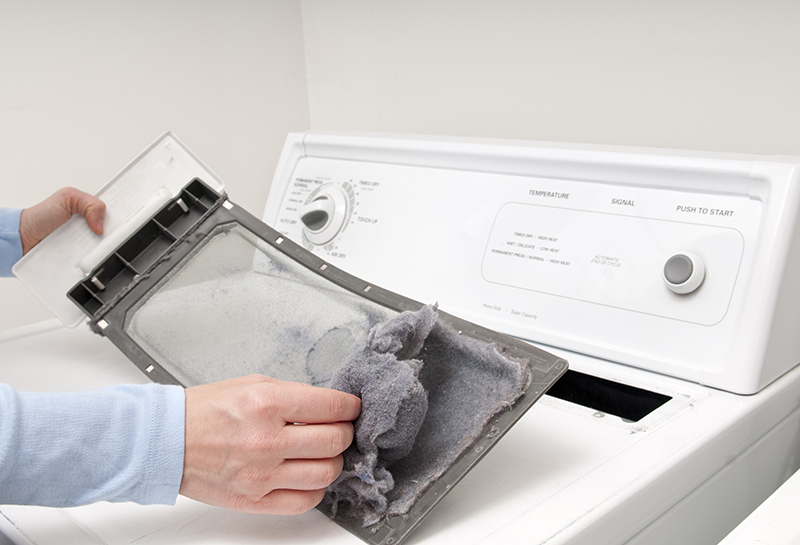Drying Your Clothes In A Dryer Is Not Always Faster Than Hanging Them Outside To Dry
 Clothes put out on a clothesline to dry have a wonderful fresh air scent. Unfortunately doing this isn’t an option for many people, but perhaps the only option for others. If you rely on a dryer to dry your clothes, it’s inconvenient when things go wrong. It can cost you a lot of money either to repair your dryer or if your dryer takes longer than it should to dry your clothes. Here are a few tips to help you get your laundry dry and back into your closet faster.
Clothes put out on a clothesline to dry have a wonderful fresh air scent. Unfortunately doing this isn’t an option for many people, but perhaps the only option for others. If you rely on a dryer to dry your clothes, it’s inconvenient when things go wrong. It can cost you a lot of money either to repair your dryer or if your dryer takes longer than it should to dry your clothes. Here are a few tips to help you get your laundry dry and back into your closet faster.
Of course the most obvious part to maintain on your dryer is the lint filter. You probably already know how important it is, but it still deserves a mention. Typically lint filters are either on top of the dryer or just inside the dryer’s door. Lint filters are the most common part to cause extended drying times. If your filter is clogged with lint, it’ll block airflow. You should clean your lint filter after every load of clothes. The less lint in your filter, the more efficient your dryer runs. Lint is also a dangerous fire hazard. Most fires started in the dryer are a result of the lint filter not being properly cleaned.
 Many people don’t realize that if you use a fabric softener in your laundry your lint filter develops a film. This film also prevents proper airflow. Wash the filter with warm soap and water. Thoroughly dry the filter before placing it back into your dryer. By taking time to wash and dry your filter periodically, it allows you to check for tears in the mesh or cracks in the frame. If your lint filter is damaged replace it.
Many people don’t realize that if you use a fabric softener in your laundry your lint filter develops a film. This film also prevents proper airflow. Wash the filter with warm soap and water. Thoroughly dry the filter before placing it back into your dryer. By taking time to wash and dry your filter periodically, it allows you to check for tears in the mesh or cracks in the frame. If your lint filter is damaged replace it.
Another huge factor in the length of time a dryer takes to dry your clothes is the airflow through the venting hose. As your clothes dry the heated air inside your dryer increases in humidity. If the air isn’t allowed to escape, the air inside your dryer remains saturated. The humid air makes it difficult for the moisture to evaporate from your clothes. Your clothes may become very hot and damp. A vent, free from blockages, allows proper airflow and dries your clothes faster.
Check the airflow from your dryer by putting your hand up against the vent on the outside of your home. The airflow should be strong. If it’s weak we know the air isn’t escaping properly. Make sure the venting hoses are securely connected to your dryer and the external vent. In addition to blockages, the venting hose may have kinks or holes resulting in low airflow. Once you have checked the venting hose, use your vacuum cleaner to clean the venting inside your dryer. You should actually do this a few times a year.
When replacing your vent hose it isn’t a good idea to use a plastic hose, as it is flammable. The best vent hoses to use are made of expandable aluminum. Use the most direct path with the least amount of bends to bring the hose to the external vent. Dips and bends in the hose are areas where lint accumulates.
One electrical to check is the heating element. If the heating element isn’t working, the air inside your dryer won’t get warm. Moisture is absorbed effectively when warm air is used. Cool air would take much longer to dry your clothes.
 Another electrical component to check is a thermostat. It controls the temperature of the air in your dryer. If your thermostat is faulty, it may signal the heating element to shut off before it reaches the desired temperature. If you are unsure of how to test either of these components contact a service technician.
Another electrical component to check is a thermostat. It controls the temperature of the air in your dryer. If your thermostat is faulty, it may signal the heating element to shut off before it reaches the desired temperature. If you are unsure of how to test either of these components contact a service technician.
So now you are familiar with speeding up the drying time of your dryer. Know that on those rainy days when you can’t hang your clothes on the line, using the dryer won’t take forever.


Speak Your Mind